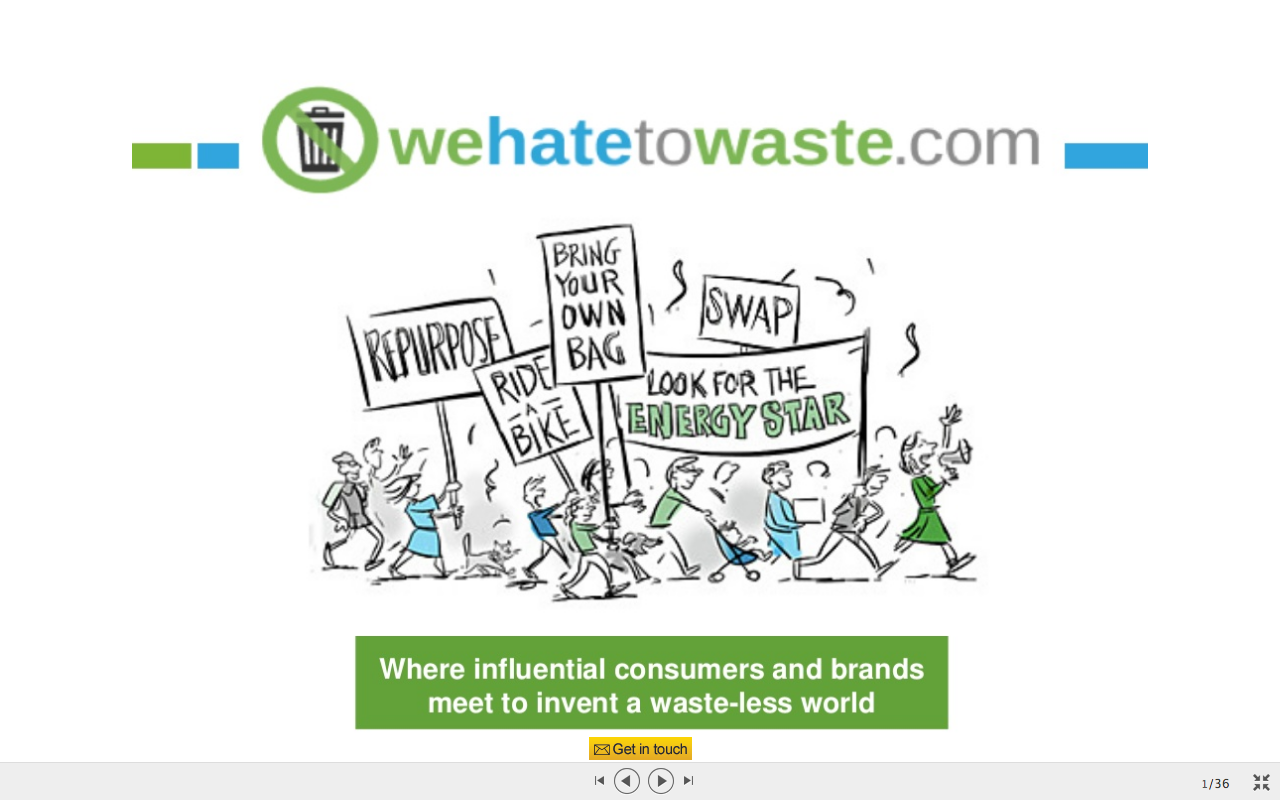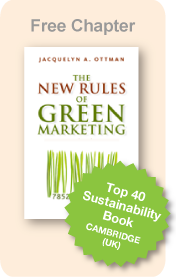Jacquie Ottman's
Green Marketing Blog
Cultures Around the World Can Inspire No-Waste LIfestyles
April 24, 2014 by Jacquelyn Ottman

Lunches delivered to workers in India in steel tiffins. (Image: Letztrend.com)
Cultures around the world possess their own unique, deeply-ingrained beliefs and traditions for minimizing waste. For instance, the Yankee Ingenuity helped America put down its early roots, and the Dutch custom of sharing unlocked ‘community’ bikes at train stations inspired bike-sharing programs in NY, Paris and other world capitals. Many such notions are the inspiration for entrepreneurs who are fast at work introducing new products that can help all consumers prevent water, energy, food and various materials from going to waste.
Many of these entrepreneurs’ stories are being shared at WeHateToWaste.com, an online community of waste watchers that we at J. Ottman Consulting launched in January of 2013. Its goal: define an appealing ‘no-waste’ lifestyle that can help all consumers thrive during the leaner times expected ahead. (See The Newest Rule of Green Marketing:Help Consumers Live a ‘No-Waste’ Lifestyle published 4/11/14). With the entire world as our fishing hole, many more opportunities await to cross-fertilize a near limitless supply of cultural traditions to harvest insights for more new ways that can help all consumers reduce, reuse, and refill.
Mottainai: How the Japanese Say ‘Waste Not. Want Not’
To help them stretch notoriously limited resources, the Japanese adhere to the principle of mottainai, which literally means ‘waste nothing.’ Used to instill the fear of a bogeyman into children who wasted food, as well as to undergird Toyota’s Lean Manufacturing System, mottainai embeds a sense of gratitude and respect for resources throughout all of Japanese culture.
With few trees and high electricity costs, Japan’s public restrooms do not provide free paper towels or hand dryers. So, everyone totes a reusable cotton ‘handkerchief’ for these and other moments. Similarly, gifts in Japan come wrapped in luxurious reusable cloth ‘furoshikis’ rather than disposable paper.
Intrigued and inspired, two enterprising women in Monterey, California created ‘People Towels’ to encourage waste-free hand drying here in the US. Want to get a gift wrapped at one of the 800+ Lush Cosmetics stores that are springing up around the world? Expect to hear, “We don’t use regular gift wrap, but for an additional $6.50 we’ll be happy to wrap that in one of our colorfully printed Knot-Wraps.”
Live Simply Like the Swedes
Do you know that in Sweden, it’s tacky to park your red Ferrari in the driveway for all to see? Inspired themselves by the Danes, the Swedes’ Law of Jante promotes social stability and harmony by attempting to wipe out status as a driver of consumption. No wonder the Swedes enjoy the highest standard of sustainable living on the planet today — and brands like Ikea with its utilitarian designs and Volvo’s timeless styles and long-lasting vehicles promote high value and encourage straightforward living.
What Else Can We Learn About Living a No-Waste Lifetyle from Other Cultures?
Inspired by India’s use of reusable delivery boxes, Hunter Moyes, a chef in Vancouver, Canada, started The Tiffin Project, aligning local area restaurants in an effort to provide discounts to customers who bring their own take-out containers.
Daily, Americans use nearly four gallons of water just to brush our teeth. Of course, we could all turn the water off when we brush (especially when using Tom’s of Maine ![]() , but then there’s the issue of the toothbrush and paste. Perhaps an inventor one day soon will take note of the Indians’ use of neem twigs to start a modern day waterless and natural tooth care revolution.
, but then there’s the issue of the toothbrush and paste. Perhaps an inventor one day soon will take note of the Indians’ use of neem twigs to start a modern day waterless and natural tooth care revolution.
The French have an uncanny knack for using up every bread crumb and turning leftovers into ‘soup du jour’. The NASA space program gave us Tang and freeze-dried ice cream so food could be transported more efficiently. What more can we learn from resourceful French chefs and NASA food scientists to feed an estimated 9.5 billion mouths by 2050?
WeHateToWaste.com
Since launching WeHateToWaste.com in January 2013, a picture of what a new sustainable lifestyle looks like is starting to emerge from insights gleaned from global cultures. Still more insights can be had from listening intently to the entrepreneurs, the Green Team leaders, the sustainability ambassadors, the local composting chiefs and other influencers who are gathering at WeHateToWaste.com to compare notes, be personally inspired, and bolster their efforts to nudge spouses, co-workers, businesses and governments in a leaner, no-waste lifestyle direction.
If you have a moment, stop by WeHateToWaste.com and drop in on some of the many important conversations taking place 24/7. If you would like to learn more about partnering with us, check out our special presentation on Slideshare.

If you personally hate to see things go to waste, please call me immediately. With 9.5 billion people expected on the planet by 2050, there’s not a moment to waste.
Adapted from a piece originally published on SustainableBrands.com April 24, 2014
Jacquelyn Ottman is founder and principal of J. Ottman Consulting, Inc. NYC-based experts on green marketing and eco-innovation. The author of The New Rules of Green Marketing: Strategies, Tools, and Inspiration for Sustainable Branding (Berrett-Koehler 2011), she founded WeHateToWaste.com, an online global community of consumers looking to prevent household waste, conserve natural resources and get the most from the products they buy.
Recent Blog Posts
The Newest Rule of Green Marketing: Help Consumers Live a ‘No-Waste’ Lifestyle
Sustainable Innovation 2013: Key Lessons
Why Consumers Care About Restaurant Food Waste



 ShareThis
ShareThis

